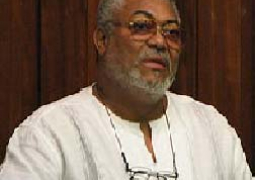NATCOM
in collaboration with UNESCO Dakar regional office recently organised a
three-day cross border harmonisation languages training at the GTU office in
Kanifing.
The training was geared towards exposing
participants to better understand the “Serer and Manjagos” languages.
In his welcoming remarks, the programme
officer at UNESCO Gambia office, Lamin Jarju, said they at the national
commission knew that the two nations of Senegal and The Gambia are two in one.
These
nations existed before colonial time, he declared, adding that it was only
during colonialism that artificial boundaries were drawn but whatever “people
you could find in The Gambia are the same people you would find in Senegal”.
“We
are calling for harmonization of the languages of Serer and Manjagos,” he stated,
saying this should be extended to all other languages as well.
He
said they looked at the autography spelling, albeit of these two languages to
see how best they could strike a middle ground to make sure that when “you use it in The Gambia you can use it in
Senegal.”
Saib
Sey, a representative from UNESCO Dakar Regional office, thanked the general
secretary of NATCOM and the Ministry of Basic and Secondary Education for
hosting the forum.
He
stated that the activities were part of the UNESCO contribution toward
achieving the SDG4 that underlines the important of mother tongue of quality in
education.
He
called for the need to promote the mother languages which would greatly help in
Africa, saying the cross border languages are very vital for such regional
integration.
According
to Sey, the mother languages are essential components of quality education,
hence they must recognise the importance attached to the mother tongue.
“Bilingual
languages are very useful to increase our education effectively,” he said.
In
declaring the forum open, the permanent secretary at the Ministry of Basic and
Secondary Education, Muhammed Jallow, dilated on the importance of national
languages in education.
He thanked UNESCO for supporting the venture
considering the importance attached to the national language, saying they want
to work with UNESCO in ensuring that they identify the critical areas in the
component of UNESCO.
He
said cross border language is the beginning of a bigger collaboration; hence he
described the forum as very timely.


